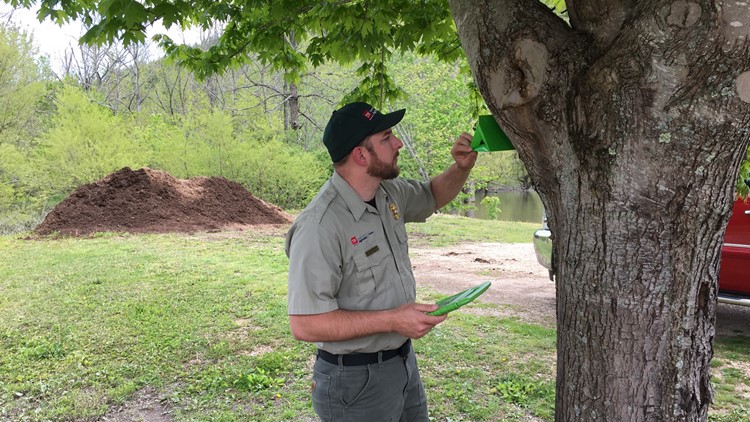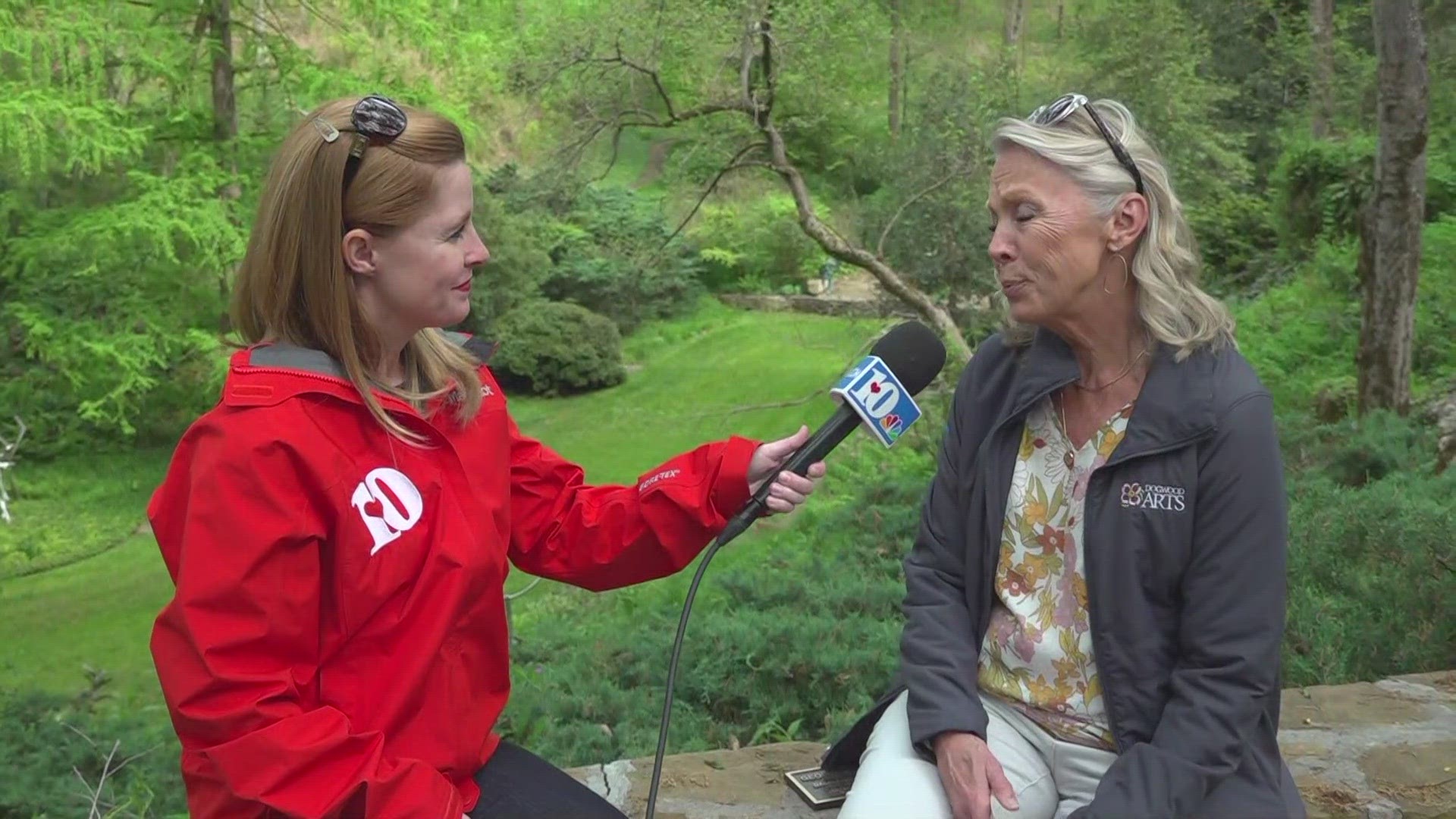JOHNSON COUNTY, Tenn. — Communities in Johnson County may have seen white wings fluttering around their lights and around trees. Soon, there may be fewer moths flying around.
Many of those moths may have been "spongy moths," a kind of invasive moth that agricultural leaders said is invasive. The Tennessee Department of Agriculture and the U.S. Department of Agriculture's Forest Service proposed an "aerial application of spongy moth mating pheromone in Johnson County this spring" to control their population.
According to a release from the TDA, spongy moth populations have surged in East Tennessee. Other forestry leaders said that the moth's caterpillars can be particularly voracious, eating the leaves of trees and shrubs and high rates. The caterpillars can defoliate trees, leaving them vulnerable to diseases and other pests that can kill the tree.
Over time, tree populations can dwindle as a result of the moth's caterpillars, said Tennessee's state forester, David Arnold. A release also said that homeowners may need to pay to remove large, dead trees because of the moths.
To stop the population from growing, Tennessee agriculture leaders said they planned to use a moth mating pheromone to disrupt the moth's mating habits. By using the pheromone, they said male moths may not be able to find and mate with flightless female moths. They said there is no known impact on humans or other wildlife with this kind of strategy.
People are invited to an open house on April 4 from 4:30 p.m. through 6:30 p.m. at the Johnson County Courthouse located at 222 W. Main St. in Mountain City to learn more about the proposed treatment.



